2021 Top 10 CSR Policies in China
2022-01-06GoldenBeeGoldenBee0
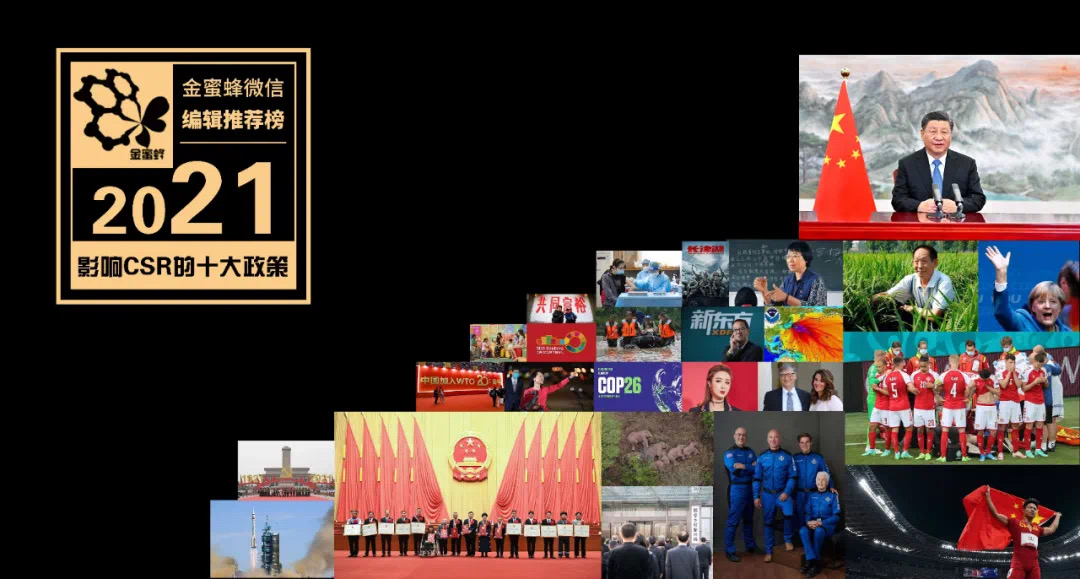
The past 2021 was marked by changes and opportunities with many meaningful bright spots. The year saw the complete victory in the fight against poverty, the new voyage of rural vitalization, the full accomplishment of the 13th Five-Year Plan, the new route of the 14th Five-Year Plan, and the outstanding results of CPC's centenary with people’s confidence. The year also witnessed biodiversity conservation, carbon peak and carbon neutrality with China’s responsibility and contribution.
The cause of CSR strives forward. With more responsible and sustainable actions, GoldenBee continues the topic of sustainable development and shares the top 10 policies influencing CSR in China in 2021 (sorted by chronological order).
China unveils antitrust guidelines on platform economy

The State Council unveiled antitrust guidelines on the country's platform economy to ensure fair market competition and promote the innovative and healthy development of the sector on February 7, 2021.
Based on the Chinese Antimonopoly Law, the Guidelines consists of 24 articles in six chapters, including general provisions, monopoly agreements, abuse of market dominance, concentration of operators, abuse of administrative power to exclude restrictions on competition, and by-laws. The Guidelines defines the basic concepts of platforms, platform operators, intra-platform operators and operators of platform economy, and proposes that anti-monopoly supervision of the platform economy should adhere to the principles of protecting fair market competition, ensuring scientific and efficient supervision, stimulating innovation and creativity, and safeguarding the legitimate interests of all parties.
It also specifies behaviors that constitute abusing market dominance, such as unfair pricing, sales below cost, refusal-to-deal, restricted trading, tie-in sales, attaching unreasonable trading conditions and differential treatment. The guideline aims to solve typical problems related to platform operators while strengthening the legal compliance of all kinds of market entities in the sector.
China outlines a roadmap for rural vitalization
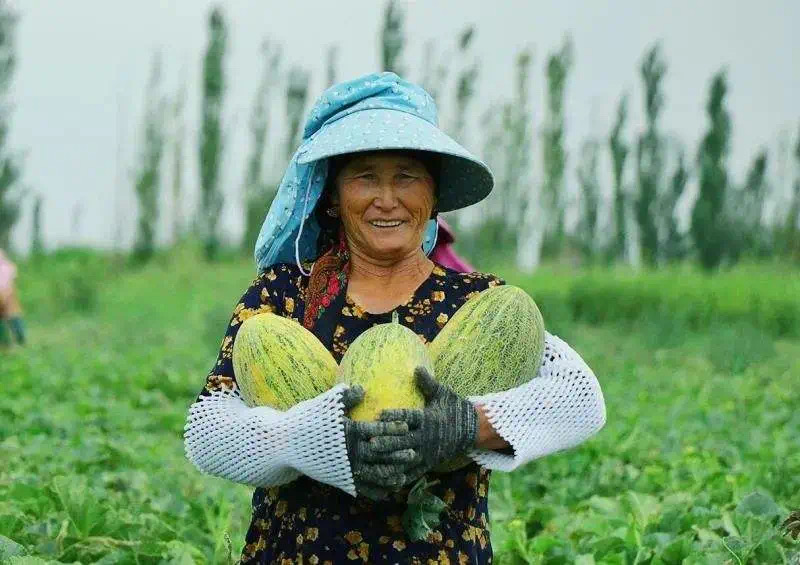
On March 22, 2021, the CPC Central Committee and the State Council issued the Opinions on the Effective Connection between the Consolidation and Expansion of Poverty Alleviation and the Effective Connection of Rural Vitalization, clarifying the guiding ideology, basic ideas, goals, tasks, and main principles of the effective connection. Combined with the current situation and tasks, four main principles and 24 work arrangements to be followed to achieve the effective connection are proposed.
According to the Opinions, after the completion of the poverty alleviation tasks, a five-year transition period will be established. Further requirements have been made on the leadership, work system, development plan, policy initiatives, and assessment mechanisms during the transition period in the next five years.
The Opinions clearly defines the phased goals. By 2025, the results of poverty alleviation will be consolidated and expanded, rural vitalization will be fully promoted, the economic vitality and development potential of areas lifted from poverty will be significantly enhanced, the quality, efficiency and competitiveness of rural industries will be further improved, the level of rural infrastructure and basic public services will be further improved, and the ecological environment will continue to improve. By 2035, the economic strength of those areas will be significantly strengthened, rural vitalization will make significant progress, the living standards of rural low-income population will be significantly improved, the urban-rural gap will be further narrowed, and more obvious substantive progress will be made in promoting common prosperity for all.
China makes a reform plan for environmental disclosure

On May 24, 2021, the Ministry of Ecology and Environment issued the Reform Plan on Lawful Disclosure of Environmental Information, which clearly pointed out that it is necessary to gradually establish and improve the requirements for mandatory disclosure of environmental information by enterprises. In 2021, the administrative measures for the lawful disclosure of environmental information and the standards for the lawful disclosure of environmental information of enterprises will be issued; in 2022, the revision of relevant format documents such as information disclosure of listed companies and bond-issuing enterprises will be completed; in 2023, the assessment of the reform of the lawful disclosure system of environmental information will be carried out, and the mandatory disclosure system for environmental information will be basically formed by 2025.
The Plan requires relevant enterprises to carry out mandatory disclosure of environmental information in accordance with the law in relevant reports such as the annual report, and continue to disclose corporate environmental information within the prescribed period; enterprises that fail to perform the information disclosure obligations such as untimely, irregular and inaccurate disclosure or false records, misleading statements or major omissions in the disclosed information, will need to timely supplement the environmental information and should bear liabilities in accordance with the law.
In order to further promote the implementation of reform and supervision management, the Ministry of Ecology and Environment issued the Administrative Measures for the Lawful Disclosure of Enterprise Environmental Information on December 11, stipulating that a temporary environmental information disclosure report will become an effective supplement on the basis of annual environmental information disclosure report to require enterprises to complete the temporary disclosure within the prescribed time limit for environmental information that has a major impact on society, public and investors, such as environmental administrative penalties, criminal liability, and environmental emergencies. Enterprises also should upload the above information to the disclosure system and timely share the information with the relevant competent departments, investors and the public.
China issues guidelines to promote foreign investment

On July 16, 2021, the Ministry of Commerce (MOFCOM) and the Ministry of Ecology and Environment (MEE) of China issued the Green Development Guidelines for Foreign Investment and Cooperation.
The Guidelines lists ten key tasks for promoting green development of foreign investment and cooperation in the new era, including promoting green production and operation, advancing green technology innovation, preventing ecological and environmental risks, complying with international green rules and standards, optimizing green regulatory services, and enhancing the reputation of green development, covering the three aspects, namely, climate, pollution, and biodiversity. Chinese enterprises are encouraged to adhere to international organizations/multilateral agencies' common standards or Chinese standards for their overseas investments and cooperation
The Guidelines is considered highly influential in pushing for a green BRI where enterprises should "follow international green rules and standards" in their overseas economic activities.
China issues opinions to protect workers’ rights

Eight departments including the Ministry of Human Resources and Social Security, the National Development and Reform Commission, and the Ministry of Transport jointly issued the Guiding Opinions on Maintaining the Labor Security Rights and Interests of Workers in New Employment Forms on July 16, 2021.
The Opinions specifically mentions those workers who do not fully meet the conditions to form de-facto employment relations, but are under supervision of the platform companies, and requires the rights and obligations of such companies and workers to be reasonably defined. To avoid shifting of responsibilities, the Opinions also clarifies that, if the platform companies adopt labour dispatch, outsourcing or other cooperative employment methods, the platform companies and their cooperative organizations shall bear the respective employment responsibilities in accordance with the law.
In terms of strengthening occupational injury protection, the Opinions puts forward that, focusing on platform companies in travel, food delivery, instant delivery, the pilot occupational injury protection for platform employees will be launched, and companies should participate in accordance with regulations.
In response to the overtime issue, the Opinions stresses that enterprises shall not to design assessment indicators that harm the workers’ safety and health, and will promote the industry to specify the manpower authorization and labor quota standards, and scientifically determine the workload and labor intensity of workers. Enterprises shall be urged to reasonably determine the rest measures according to the applicable provisions, and pay reasonable overtime pay for statutory holidays higher than that for normal working hours.
MIIT bans companies moving data out of China
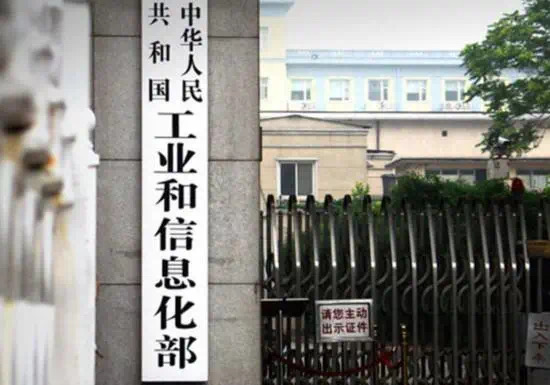
On September 30, 2021, the Ministry of Industry and Information Technology (MIIT) published the Measures for the Administration of Data Security in the Field of Industrial and Information Technology sectors (Trial) and is soliciting public opinions. The Measures sets out detailed requirements regarding data storage, processing, disclosure, disposal, and cross-border transmission. Data processors may be obliged to record and report to the government on their activities in processing important and core data.It aims to regulate the industrial and telecoms data processing activities carried out in China.
Notably, it clearly bans enterprises from moving “core data” out of China. And it requires companies to get a government security review before providing “important data” abroad. The Measures points out that without the consent of the individual or the entity, enterprises shall not obtain accurate user portraits or restore data of specific subjects through data mining, association analysis, or other technical means.
China issues a guideline to further biodiversity conservation

On October 19, 2021, the General Offices of the CPC Central Committee and the State Council issued a guideline to further biodiversity protection work. The guideline outlines China's biodiversity protection goals. Protected natural areas, mainly national parks, will account for 18 percent of China's land area by 2035, when China's forest coverage rate, comprehensive grassland coverage, and wetland protection rate will increase to 26%, 60%, about 60%, respectively. The guideline also explicates measures to establish and improve the evaluation standard system for the effectiveness of biodiversity conservation and restoration, ecosystem service functions, and the economic value of species resources. Based on the survey and assessment on national ecology, a comprehensive assessment report of biodiversity will be released every 5 years.
The guideline stipulates to promote public participation in biodiversity conservation, encourage enterprises, institutions, and social organizations to carry out activities such as publicity, education, consulting services, and legal assistance on biodiversity conservation through government purchases of services. All parties should to strengthen the information disclosure mechanism, promptly respond to relevant hot issues, establish a sound litigation mechanism, and strengthen judicial guarantees for public participation in biodiversity protection.
According to the guideline, China will actively participate in global multilateral environmental governance and the formulation of related international standards, strengthen exchanges and consultations on key issues, promote the formulation of the "Post-2020 Global Biodiversity Framework", and implement related treaties.
China unveils an action plan for carbon peak

On October 24, 2021, China unveiled the Working Guidance For Carbon Dioxide Peaking And Carbon Neutrality In Full And Faithful Implementation Of The New Development Philosophy. As a core part of "1+N"policy framework, the guidance rolls out a roadmap for carbon peak and carbon neutrality. Later, the State Council issued the Action Plan for Carbon Dioxide Peaking Before 2030. To peak carbon dioxide emissions, China will take actions in green energy transformation, energy conservation, reduce emissions in transportation, industry, urban and rural construction and support the circular economy and low-carbon technologies, the plan said.
China releases a guideline for population aging
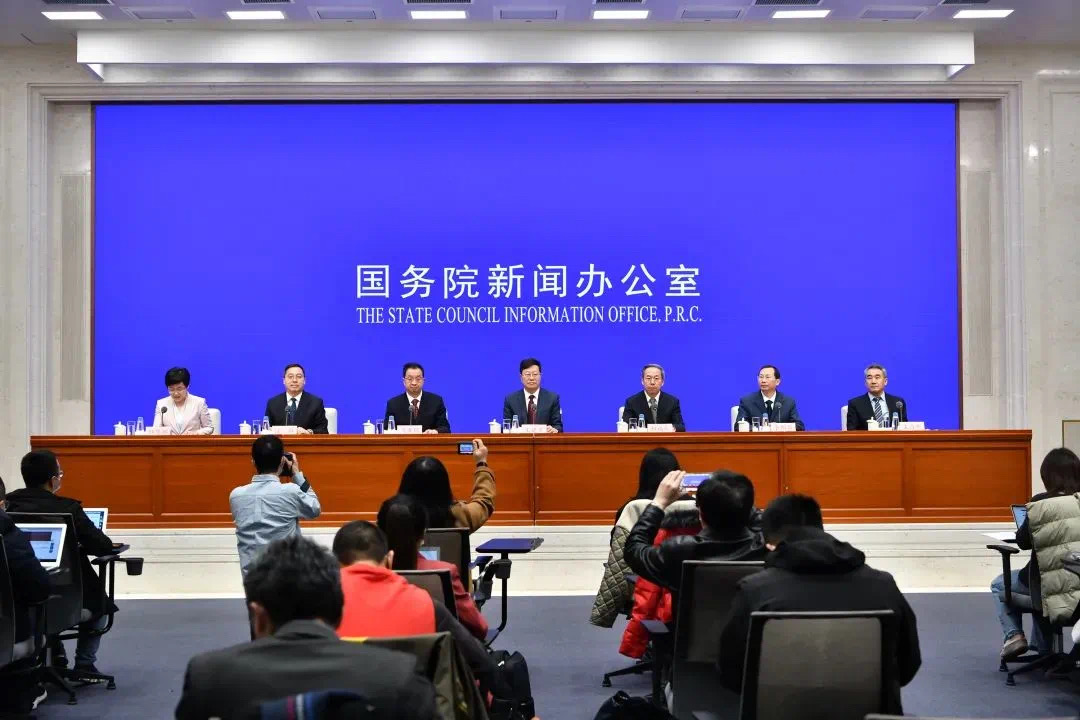
On November 24, 2021, China released a guideline for measures to further implement its national strategy to address population aging. The guideline outlines a range of measures, including to improve elderly care services, healthcare system, social participation among the elderly, to build an elderly-friendly society, and to grow the "grey hair economy".
To better meet the cultural life needs, cultural and sports venues should be provided to raise the quality of cultural and sporting services for the elderly. To create a livable environment, new technologies and methods should be encouraged while the traditional service methods familiar to the elderly should be retained. The guideline puts that the Internet applications and mobile terminals should be accelerated to adapt to the aging transformation, and strengthen digital skills training to improve the digital literacy of the elderly. The guideline stresses that new urban areas and new residential areas shall be constructed in accordance with the standards of supporting facilities for the elderly. By 2025, a batch of elderly care service facilities will be built in the old urban districts and built-up residential areas to improve a one-stop service circle of elderly care.
China revises a law to better protect women’s rights
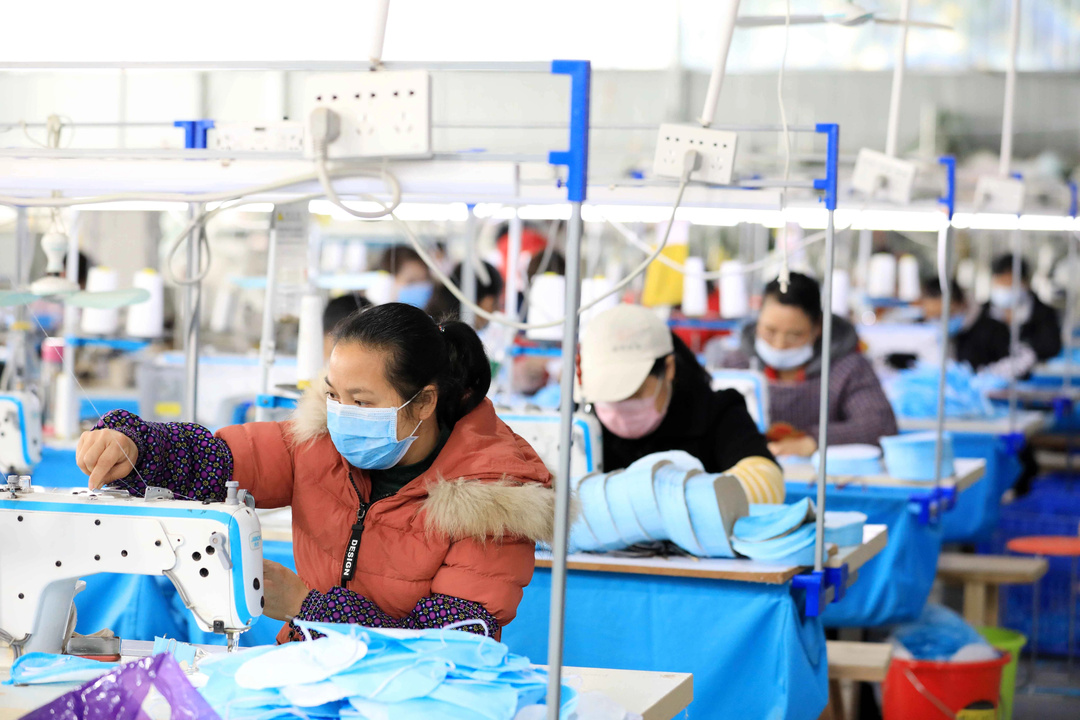
On December 20, 2021, the 32nd Meeting of the Standing Committee of the 13th National People's Congress convened in Beijing. The draft amendment to the Law on the Protection of Women's Rights and Interests was submitted for deliberation for the first time, responding to the current pain points and difficult issues in the protection of women's rights, providing detailed regulations, and marking another major adjustment to the law since it came into force nearly 30 years ago.
The draft adds stipulations such as the definition of "discrimination against women", the working mechanism for safeguarding women's rights and interests, the responsibilities of judicial organs, the gender equality evaluation mechanism of laws and policies, the survey and release system on gender statistics, and the basic national policy of gender equality. The draft newly includes provisions on economic compensation for housework at the time of divorce; clarifies main situations of gender discrimination in employment; lists common situations of sexual harassment and stipulates preventive measures that schools and employers should take.
Best Practices
- The 100-year brand — Air Liquide also has a sense of juvenile
- Beijing Public Transportation Corporation: Developing green transportation to build a harmonious and livable capital
- CGN: Building a modern factory in barren deserts and developing a new win-win cooperation model along “Belt and Road”
Upcoming Event

All the materials on the site “Source: XXX (not from this site)” have been reprinted from other media. They do not imply the agreement by the site.
All the materials with “Source: CSR-China Website” are the copyright of CSR-China Website. None of them may be used in any form or by any means without permission from CSR-China Website.
GoldenBee Official WeChat
Copyright © Csr-china.net All Right Reserved.
京ICP备19010813号










